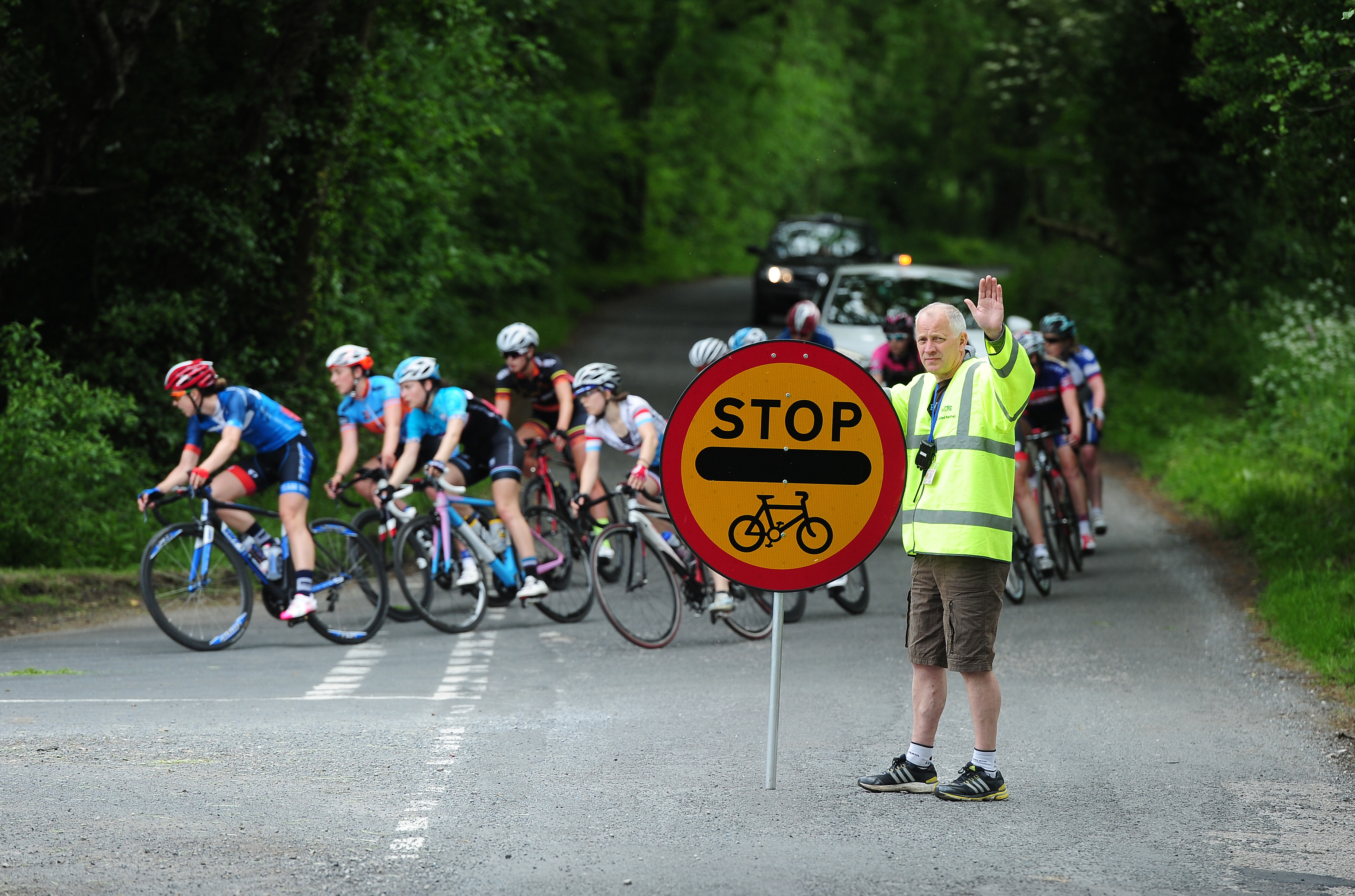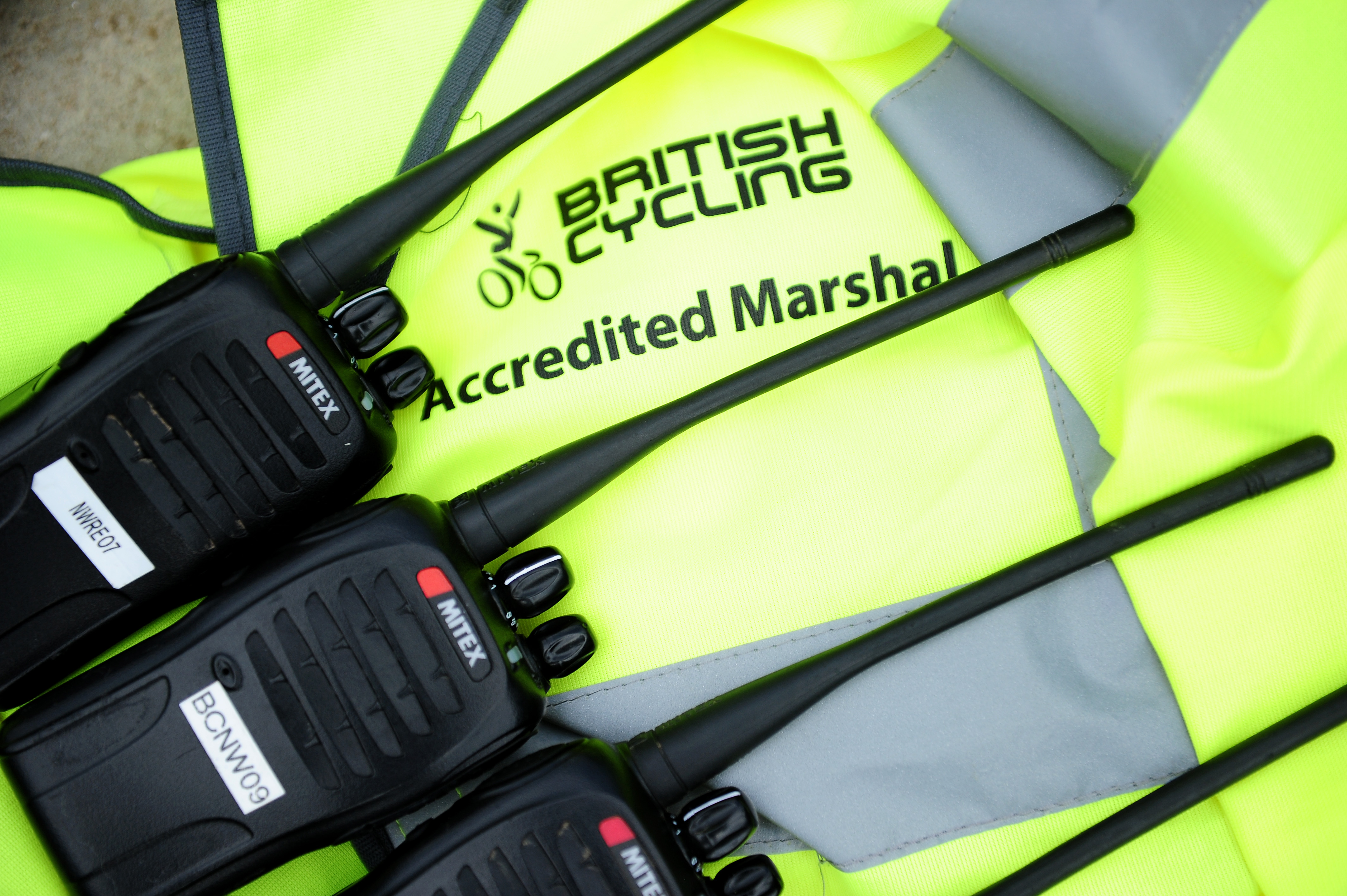
Ahead of the London 2012 Olympics, committee chairman Lord Sebastian Coe called volunteers the “lifeblood” of the Games. The stage might not be as grand, nor the prestige as high, but the same is true of the UK’s road racing scene, where volunteers and marshals have become increasingly hard to find.
It is no exaggeration to say that bike races cannot take place without volunteers. Every British Cycling event is required to have accredited marshals – those who have completed a course that gives them the power to stop and hold traffic. Without them, as well as volunteers spotting hazards, providing first aid, and driving cars in the convoy, races cannot go ahead.
For Will Foster, a leading figure in the Yorkshire-based Yomp Bonk Crew, finding these people is the “hardest bit” of race organisation.
“I have a few people I regularly text,” he said, “but if they’re not available, I don’t know where else to find people. I put stuff out on social media, and then if no one replies, what do I do? It’s a real challenge.”
Last year, Foster came within minutes of calling off a race due to a lack of accredited marshals, before a rider’s parent stepped in to help. It was a similar story for Dulwich Paragon and their Wally Gimber race this year, said club chair Patrick Hawkins, who explained it takes around 40 volunteers to stage the event. "We came very close to having to cancel it," he said.

The UK road racing scene is in desperate need of accredited marshals. These have greater powers than ‘red-flag’ marshals, insofar as they are allowed by law to stop traffic. To become one, sign up to the course through British Cycling’s website.
“There’s an online module you do first,” explained Glyn Durrant of the Surrey Cycle Racing League. “Then you actually have to physically stop cars in a big car park, and then do some more class work as well.”
The whole process takes only a handful of hours. An official certificate is then awarded once the marshal helps out at five races. “I’m trying to get a couple of the club members to take on the course, because we are struggling so much,” said Phil Feather of Kingston Wheelers.
All accredited marshals operate regionally, and receive free British Cycling membership and clothing. To find out more, contact accreditedmarshal@britishcycling.org.uk
A risk assessment for each race determines how many accredited marshals are needed, a change from the days when any club volunteer could marshal at a road corner or pinch point.
Though volunteers receive no salary, they still come with a cost. “Our income from entry fees was about £2,800, and about a quarter of that we would spend on things like travel expenses for all the volunteers,” said Wally Gimber organiser Hawkins. “It’s a big chunk.”
This can be even higher for organisers in far-flung parts of the country, where a shortage of volunteers has them calling in distant recruits. Travis Bramley, who organises Plymouth Corinthian’s race, said this has become a “real killer” for his club in Devon.
“Being where we are in the country, we’ve had to go as far as getting people down from Bristol, and obviously you’ve got to pay 45p per mile for petrol costs… You’re spending £150-200 on a single volunteer," Bramley said.
“If we managed, as a club, to have five or six accredited marshals, a commissaire that was local, and people to drive the lead cars, we would be absolutely fine,” he added.
Everyone Cycling Weekly spoke to about volunteers agreed that the solution relies on more kindhearted people putting their hands up to help. Some also called on British Cycling to incentivise volunteering, and make the accreditation process more straightforward to become a marshal.
“I think if we could try and instil more of a culture of supporting your local club, and helping out at races, that would go a long way,” Bramley said.
It’s time to get the lifeblood flowing again.
This article was originally published in Cycling Weekly magazine on 28 November 2024 as part of a series examining the state of grassroots road racing in the UK. Subscribe now and never miss an issue.







